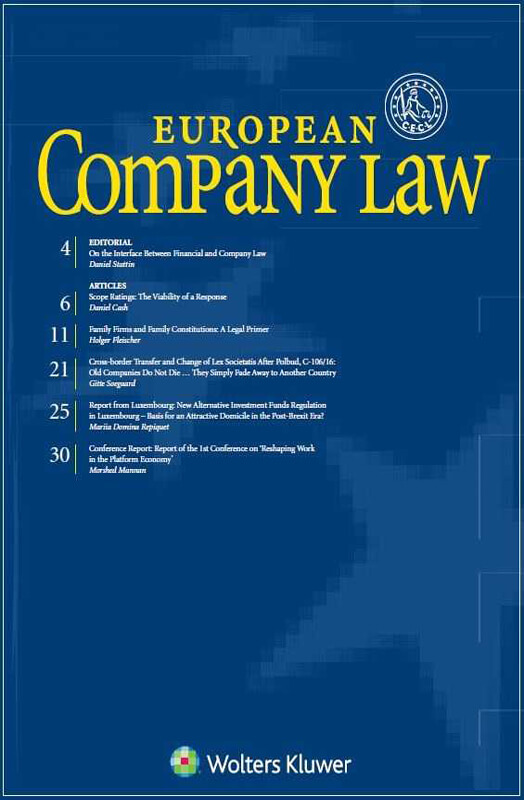Home > All journals > European Company Law > 22(2) >

Francesco Salerno
European Company Law
Volume 22, Issue 2 (2025) pp. 39 – 48
Abstract
The EU has introduced
various ESG information obligations for large companies and financial
intermediaries, hoping to indirectly promote virtuous behaviour. The
legislation is spread across a multiplicity of regulatory sources and concerns
heterogeneous matters: investor protection and consumer preferences (the SFDR,
Delegated Regulation under MIFID II, Listing Act, and Green Claims Directive),
disclosure obligations (the NFRD and subsequently Corporate Sustainability
Reporting Directive (CSRD)), and company duties (the Taxonomy Regulation and,
more recently, Corporate Sustainability Due Diligence Directive (CSDDD)).
However, transparency in ESG policies is much more difficult to achieve than in
financial information, given the descriptive nature of sustainability
information and the lack of standards and well-established operating practices.
Comparing the main provisions of European legislation regulating corporate
sustainability information, whether mandatory or not, this study aims to show
how these provisions are gradually becoming closer to the financial information
regime. Despite this, enforcement is weak, because the latter regime is heavily
dependent on the choices of individual Member States, which are left to define
the system of remedies and sanctions. Perhaps this approach is a compromise,
given the differences between the sustainability policies of various national
governments, but its transnational nature means that this phenomenon will
require a higher level of harmonization.
Keywords
Sustainability, ESG, Transparency, Enforcement, SFRD, CSRD, CSDDD, Green claims, Listing Act
Extract
